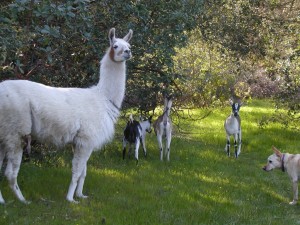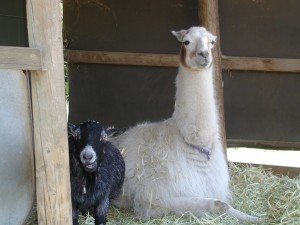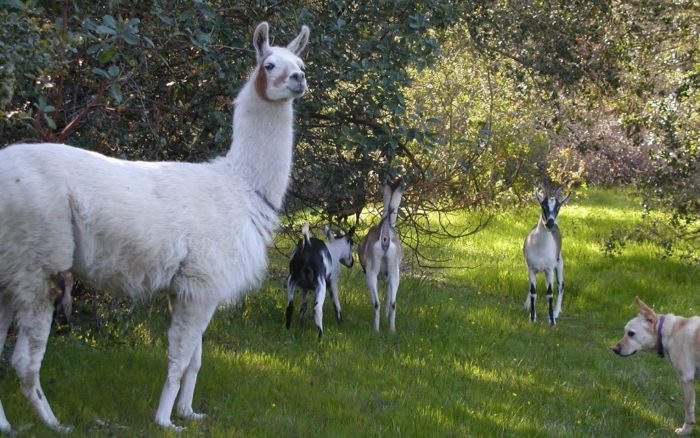 |
| Racu on duty. |
At first no one noticed the Buddha I had placed in the forest by the winter creek— except our llama, Racu. Racu sees everything! His job is guarding the goats. He witnesses what moves in the forest near their pen, alarming with his horse-like whinny if an intruder happens to be nearby: a mountain lion, coyote or perhaps a neighbor. On our walks he examines the hillsides. Although alert, he has a peaceful, aloof look to him, like he has been a meditator all his life.
| Forest Buddha |
Oddly, his countenance reminds me of a story about a rainmaker. It is said that C. G. Jung told this story many times. He first heard it from Richard Wilhelm, translator of the I Ching, who was living in the province of China when it occurred.
After several months of a great drought and attempts to bring rain through various religious rituals, the community called in a rainmaker. When the old man arrived, he asked for a quiet hut and locked himself up for three days. On the fourth day clouds came and there was a great snow storm with a lot of accumulation at a time of year it did not usually snow. When asked how he made the snow, he said that he wasn’t responsible for it. “But what have you done these three days?” the people asked. “Oh, I can explain that,” he replied. “I come from another country where things are in order. Here they are out of order, they are not as they should be by the ordinance of heaven. Therefore the whole country is not in Tao, and I am also not in the natural order of things because I am in a disordered country. So I had to wait three days until I was back in Tao, and then naturally the rain came.” (1)
Going within to bring energetic balance is a practice our extraverted American culture knows little about. Yet this story would imply that inner balance is critical in the face of the turmoil and catastrophic tragedy in our world, something we can actually do. It is so easy to spin out into anxiety, grief, denial, blaming ourselves or others, getting waylaid by unworked personal issues. It is not that there are not real outer dangers; there are. But the story of the rainmaker suggests another paradigm: our inner state synchronizes with the outer, a “mysterious parallel between the implicate and explicate realms,” (2) and balance returns.
Llamas are not usually aggressive animals. They warn if there is danger, but mostly they watch. Any coyote stupid enough to intrude would get a warning spit, and if that were not enough, be stomped to death. But that has never happened here. In fact, I have never seen a coyote or bobcat even approach the pen.
Like all of us, Rocu does have his “issues.” He has spit in my face because I made eye contact while giving him a treat. But most of the time he has a peaceful, composed presence. One wonders if this quiet presence creates a resonance that affords less aggression? Do we have something to learn here?
 |
| Racu and his buddy, Boris |
